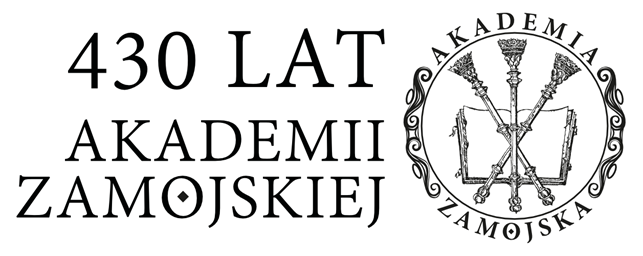Arnett J.J., Emerging Adulthood: A Theory of Development from the Late Teens through the Twenties, „American Psychologist”, 55 (2000) nr 5, s. 469–480.
Blumer H., Interakcjonizm symboliczny. Perspektywa i metoda, tłum. G. Woroniecka, red. A. Manterys, Kraków 2008.
Bohnsack R., Documentary Method and Group Discussions, w: Qualitative Analysis and Documentary Method in International Education Research, red. R. Bohnsack, N. Pfaff, W.Weller, Leverkusen Opladen 2010, s. 99-125.
Bridges W., Zarządzanie zmianami. Jak maksymalnie skorzystać na procesach przejściowych, tłum. R. Kotlicki, Kraków 2008.
Brzezińska A., Tożsamość u progu dorosłości. Wizerunek uczniów szkół ponadgimnazjalnych, Poznań 2017.
Charmaz K., Teoria ugruntowana. Praktyczny przewodnik po analizie jakościowej, tłum. B. Komorowska, Warszawa 2009.
Dima G., Skehill C., Making sense of leaving care: The contribution of Bridges Model of Transition to Understanding the Psycho-Social Proces, „Children and Youth Services Review”, 33 (2011) s. 2532-2539, DOI: 10.1016/j.childyouth.2011.08.016.
Elsley S., Backett-Milburn K., Jamieson L., Review of Research on Vulnerable Young People and Their Transitions to Independent Living, Edinburgh 2007, http://www.scotland.gov.uk/Publications/2007/08/23161736/0, dostęp:14.05.2021.
Glynn N., Understanding Care Leavers as Youth in Society: A Theoretical Framework for Studying the Transition Out of Care, „Children and Youth Services Review”, 121 (2021), DOI: 10.1016/j.childyouth.2020.105829.
Golczyńska-Grondas A., Chybotliwa łódź. Losy wychowanków placówek opiekuńczo-wychowawczych. Analiza socjologiczna, Łódź 2019.
Golczyńska-Grondas A., Usamodzielnienie wychowanków placówek opiekuńczo-wychowawczych – podstawowe problemy, implikacje dla praktyki, „Problemy Polityki Społecznej. Studia i dyskusje”, 30 (2015) nr 3, s. 77-95.
Grotowska-Leder J., Rek-Woźniak M., Kudlińska I., Polityka przebiegu życia – teoretyczne i metodologiczne ramy badań nad procesem osiągania dorosłości, „Przegląd Socjologiczny”, 65 (2016) nr 2, s. 83-104.
Grotowska-Leder J., Od redaktorki: Osiąganie dorosłości i młodzi dorośli jako kategorie analiz socjologicznych, „Przegląd Socjologii Jakościowej”, 15 (2019) nr 4, s. 6, DOI: 10.18778/1733-8069.15.4.01.
Ibarra H., Provisional Selves: Experimenting with Image and Identity in Professional Adaptation, „Administrative Science Quarterly”, 44 (1999) nr 4, s. 764-791.
Kędzierska H., Care Leavers’ Models of Entering Adulthood: Analysis of Reports Concerning the Process of Gaining Independence, „Colloquium” 3 (2020) s. 5-17, DOI: 10.34813/19coll2020.
Kohli M., The Institutionalization of the Life Course: Looking Back to Look Ahead, „Research in Human Development”, 4 (2007) nr 3-4, s. 253-271, DOI: 10.1080/15427600701663122.
Społeczne przestrzenie doświadczenia, red. S. Krzychała, Wrocław 2004.
Kudlińska-Chróścicka I., Stawanie się osobą dorosłą w czasach płynnej nowoczesności w doświadczeniu wielkomiejskich młodych dorosłych, „Przegląd Socjologii Jakościowej”, 15 (2019) nr 4, s. 34-60, DOI: 0.18778/1733-8069.15.4.03.
Markus H., Nurius P., Possible Selves, „American Psychologist”, 41 (1986) s. 954–969.
Mickiewicz-Stopa K., Problemy usamodzielniania się wychowanków pieczy zastępczej, „Polityka Społeczna”, 10 (2016) s. 26-30.
Minta J., Tranzycje w konstruowaniu karier przez młodych dorosłych. Przesłania dla poradnictwa, Wrocław 2016.
Patton M., Designing Qualitative Studies, Beverly Hills 1990, https://legacy.oise.utoronto.ca/research/field-centres/ross/ctl1014/Patton1990.pdf, dostęp: 28.04.2020.
Piszczatowska-Oleksiewicz M., Polscy gniazdownicy. O powodach, dla których dorosłe dzieci mieszkają z rodzicami, „Pogranicze. Studia Społeczne”, 24 (2014) s. 181-206, DOI: 10.15290/pss.2014.24.11.
Rapley T., Analiza konwersacji, dyskursu i dokumentów, tłum. A. Gąsior-Niemiec, Warszawa 2010.
Schlossberg N.K., A Model for Analyzing Human Adaptation to Transition. „Counselling Psychologist”, 9 (1981) s. 2-18.
Seung Lam M., Pollard A., A Conceptual Framework for Understanding Children as Agents in the Transition from Home to Kindergarten, „Early Years”, 26 (2006) nr 2, s. 123-141.
Stein M., Research Review. Young People Leaving Care, „Child and Family Social Work”, 11 (2006) s. 273-279.
Storø J., To Manage on One’s own after Leaving Care? A Discussion of the Concepts Independence versus Interdependence, „Nordic Social Work Research”, 8 (2018) s.104-115.
Storø, J. Which Transition Concept is Useful for Describing the Process of Young People Leaving State Care? A Reflection on Research and Language, „European Journal of Social Work”, 20 (2017) nr 5, s. 770-781.
Winogrodzka D., Sarnowska J., Tranzycyjny efekt jojo w sekwencjach społecznych młodych migrantów, „Przegląd Socjologii Jakościowej”, 15 (2019) nr 4, s. 130–153, DOI: 10.18778/1733-8069.15.4.07.
Zittoun T., Learning through Transitions: The Role of Institutions, „European Journal of Psychology of Education”, 23 (2008) nr 2, s. 165-181.



 Język Polski
Język Polski
 English
English
 Italiano
Italiano

